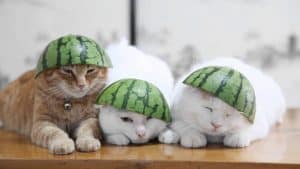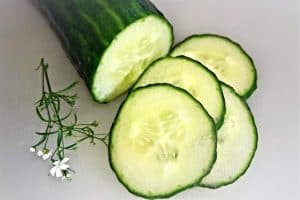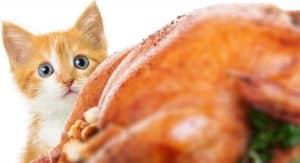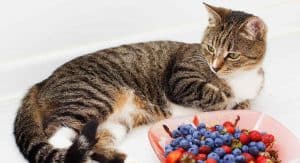Cats are curious creatures. They may pass a bag of chips and take a bite, they may take some licks of the wine left on the table, or they may take a bite of our chocolate bar. However, foods that are not specifically designed for cats can significantly pose a health risk. Here are some common foods not to give to cats.
Contents
Alcohol
Just like humans, they seem to be drawn to alcohol. There are cases where cats have taken harder stuff such as whiskey. However, intake of alcohol, no matter how small the sip, can significantly affect your furry friend.
Cats have difficulty in metabolizing alcohol. To some, just a teaspoon of the drink can lead to vomiting, or in extreme cases death or coma. Intake of alcohol can lead to severe liver or brain damage. The tolerance to alcohol varies from one cat to another. Even if your pet has a high tolerance to alcohol, regular intake is likely to lead to complications.
Tuna
Although most cats adore tuna, it is not necessarily the best food for them. Too much tuna can lead to malnutrition. This is because a can of tuna does not contain all the nutrients required by your pet. An occasional treat of home grade tuna or tuna cat food balanced with other cat-friendly protein sources is fine. However, too much tuna presents the risk of vitamin E deficiency. This deficiency can result in Yellow Fat disease (steatitis). Also, high tuna intake can lead to mercury poisoning and the cat may lose appetite.
Caffeinated drinks
Drinks such as coffee, tea, or caffeine-containing soft-drinks can trigger complications such as breathing problems, muscle problems, and heart palpitations. Considering that caffeine is a stimulant, these drinks make the feline restless.
Chocolate
Can you give your cat chocolate? According to ASPCA, chocolate is the leading human food ingested by pets. It is also a common ingredient in other foods, particular pastries such as cookies, cakes, and candies. Chocolate contains a chemical known as theobromine. This chemical affects the nervous system and can result in muscle tremors, seizures or heart problems. It is easy for a child to share a chocolate chip cookie with their feline friend.
However, chocolate can prove deadly to your pet. The degree of harm depends on the size of the animal, the degree of sensitivity, and the concentration of theobromine. Dark chocolate and other pure forms of chocolate can be more toxic compared to dairy chocolate. White chocolate has the lowest percentage of harmful compounds. Still, avoid giving your pet any forms of chocolate to avoid complications.
Dairy products
I remember the Tom and Jerry cartoon. If there are foods that Tom loved was milk, mice, fish, and birds. Although Tom never got a chance to get the mouse or the birds, he definitely enjoyed a bottle of milk. So, what is wrong with giving our cat a sa

ucer of milk? While kittens appear to handle their milk intake rather well, feeding cats’ milk and other dairy products can lead to digestive problems.
Furthermore, a majority of them are lactose intolerant. Human beings have an enzyme lactase. This enzyme facilitates the digestion of milk and milk-containing products. Whereas kittens have a percentage of lactase that helps them digest their mother’s milk, they cannot properly digest cow’s milk. Adult cats also happen to be wholly deficient in the enzyme. As a consequence, the regular intake of milk and milk products can cause them to diarrhea, and vomit.
Raw fish
Can cats eat fish? Small quantities of raw fish are not harmful to them, but large quantities are a health risk. Raw fish contains a certain enzyme that can break down thiamin resulting in a vitamin deficiency, particularly a deficiency in vitamin E. You should also give it cooked fish in moderation as it can affect them as well. An occasional treat of raw fish is okay, but do not make it a regular part of their meal.
Grapes, raisins
These foods can be harmful leading to complications such as indigestion, stomach failure, or kidney problems. Giving cats grapes or raisins can be toxic leading to symptoms such as lethargy, diarrhea, vomiting, and abdominal pain.
Raw or cooked liver
Raw liver contains high levels of vitamin A. The high vitamin content can lead to a health issue known as hypervitaminosis. Whether raw or cooked, liver should be served occasionally and sparingly, preferably when it is a bit over-cooked.
Xylitol
Xylitol is a compound used as a sweetener in many candies, mouthwash, and toothpaste. This chemical can increase insulin levels in the cat which in turn affects blood sugar levels. Xylitol can also lead to liver failure and cat seizures.
Fat trimmings from meat and bones
There is a tendency to give the cat the fat trimmings from bones or meat. However, these fats are not ideal for your pet and can lead to vomiting or diarrhea.
Nuts: Macadamia, Almonds, Apricots.
Nuts can cause some digestive problems to your cat. Regular intake of these nuts could lead to pancreatitis (inflammation of the pancreas). Also, these foods could lead to symptoms such as vomiting and diarrhea.
Yeast dough/ raw dough
The unbaked dough containing yeast can be a health hazard. When ingested, the dough rises in the warm conditions facilitated by the pet’s digestive stomach. As a consequence, the dough leads to bloating in cats and can progress to gastric-dilatation volvulus (GDV), or what is commonly termed as a twisted stomach.
Also, the yeast in the dough can become fermented leading to alcohol poisoning. Common symptoms to watch out for include vomiting, drooling, retching, elevated heart rate, distended stomach, weakness, and in severe cases coma or death.
Dog food
It is important to note that dog food may not necessarily be conducive to cats. First, the nutritional requirements of a cat differ from that of a dog. As a consequence, regular intake of the dog food can result in certain vitamin deficiencies.
Raw eggs
Intake of raw eggs increases the risk of salmonella infection. Furthermore, raw egg whites contain a compound known as avidin. This compound is harmful as it interferes with the intake of vitamin B and can lead to skin disorders.
Salty foods & snacks
Large amounts of salt can result in sodium poisoning. The high salt content also triggers excessive cat urination and thirst. Symptoms to watch out for include diarrhea, tremors, feline depression, high temperatures, and in severe cases seizures, or death.
It is advisable to keep your cat away from foods containing onion or onion powder. Onions, in all forms, and chives lead to a breakdown in the feline’s red blood cells resulting in anemia. Regular intake of onion powder or any form of onion will result in onion poisoning.
More foods to be careful about
Keep meat and poultry bones out of the cat’s meal. This is because your feline may end up with internal injuries while trying to chew on the meat in the bones. Dispose of bones outside in a closed garbage can or in a way that they will be inaccessible to the cat. Some sources recommend you give your cats chunk and bones.
Be watchful over the types of plants around your home. Common plants such as Aloe Vera, Lilies, Ivy, Azaelas, Daffodils, and Poinsettias are some of the plants that are harmful to your pet. If you are concerned about a certain plant in your garden, then research it online or consult your vet.
Bear in mind that cats are carnivorous. Therefore, their digestive system is designed for a carnivorous diet. However, this does not mean that it should not have his/her veggies. I am sure you have seen a cat eating grass i.e. they are known to snack on certain grasses.
This is because grass contains a folic acid-a key ingredient in hemoglobin development. Moreover, grass helps in digestion and in clearing hairballs in your pets’ digestive system. Certain fiber-rich vegetables, such as spinach, or cucumber and broccoli can be given to cats as filler foods or snacks. Do not attempt to turn your cat into a vegetarian as large quantities of vegetables can lead to intestinal bloating.
Our feline friends are curious creatures. They are likely to eat something that poses a potential threat to their health. In this case, it is advisable to keep the number of your local vet close in case of emergencies.
References:
- Eve Devereux. Cats Facts, Figures & Fun, AAPPL, 2006
- Outwitting Cats: Tips, Tricks, and Techniques for Persuading the Felines in Your Life That What You Want Is Also What They Want, Rowman & Littlefield, 2004
- https://www.preventivevet.com/the-truth-about-avocado-and-cats-dogs?ecid=
- https://www.vets-now.com/2017/02/foods-poisonous-to-cats/
- https://pets.thenest.com/nuts-poisonous-cats-9245.html
- https://www.aspca.org/pet-care/animal-poison-control/people-foods-avoid-feeding-your-pets
- https://www.petpoisonhelpline.com/poison/bread-dough/
- https://pets.webmd.com/cats/ss/slideshow-foods-your-cat-should-never-eat





Leave a Reply
You must be logged in to post a comment.